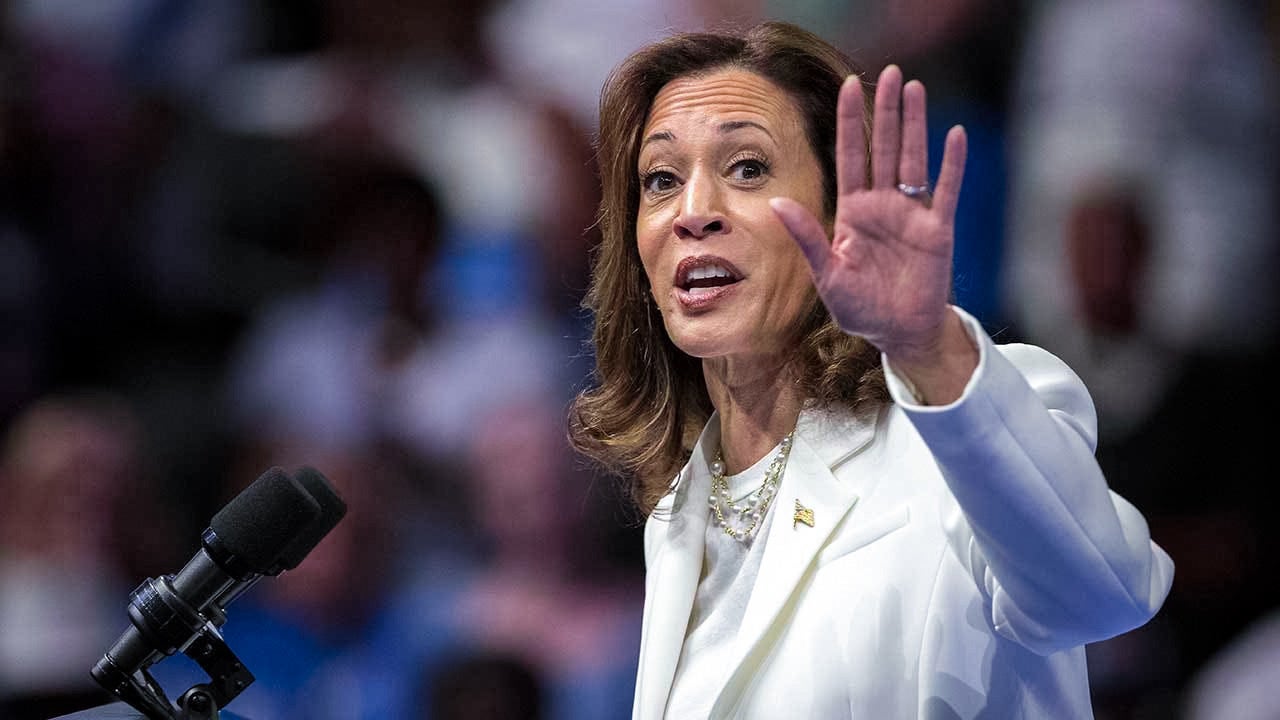Kamala Harris: The Press Conference Drought and Its Implications
Vice President Kamala Harris has recently made headlines not just for her political ambitions but also for her notable absence from the press conference circuit. As the presumptive, and now official, Democratic nominee for president, Harris has gone an astonishing 71 days without holding an official press conference. This unusual silence has raised eyebrows and sparked discussions about her media strategy as the election season heats up.
A Shift in Media Engagement
Under increasing pressure to engage with the press, Harris finally broke her interview drought last month during a visit to Georgia. However, the format was far from traditional; she participated in a pre-taped segment with CNN’s Dana Bash alongside her running mate, Tim Walz. This appearance was a departure from the typical press conference format, which usually allows for more spontaneous questions and answers from journalists.
In contrast, former President Donald Trump has been actively engaging with the media, holding his third news conference since early August in California. During this event, he took the opportunity to address various pressing issues, including crime, immigration, and inflation, while also taking jabs at Harris’s home state of California. This stark difference in media engagement styles has led to speculation about Harris’s approach to public relations and her overall campaign strategy.
Increased Interview Activity
Despite her press conference drought, Harris has ramped up her interview activity in recent weeks. She has participated in several radio interviews and conducted a solo sit-down with a Philadelphia television station. Additionally, she made headlines by appearing with Oprah Winfrey at a high-profile campaign event, showcasing her ability to connect with influential figures and audiences.
However, the question remains: when will Harris hold a formal press conference as a candidate? Some observers suggest that it may not happen at all, at least while she remains in the race. Conservative Radio Libre host Jorge Bonilla expressed skepticism about the likelihood of a press conference, arguing that the media has largely enabled Harris’s "plexiglass basement" strategy. This approach allows her to maintain an appearance of accessibility while remaining largely unaccountable to the press.
Criticism and Controversy
Harris’s recent interviews have not been without controversy. During a sit-down in Philadelphia, her response to a question about her economic policy drew sharp criticism. When asked how she would address rising prices, she referenced her middle-class upbringing and the pride of her neighbors in their lawns. This answer was perceived by some as evasive and disconnected from the pressing economic concerns facing many Americans today.
Critics argue that such responses highlight a broader issue within Harris’s campaign: a lack of substantive policy discussion. As she navigates the complexities of her candidacy, the pressure to articulate clear and actionable policies is mounting. The expectation is that candidates, especially those vying for the presidency, should engage in rigorous dialogue about their plans and how they intend to address the nation’s challenges.
The Role of Media in Political Campaigns
The dynamics of media engagement in political campaigns have evolved significantly in recent years. Candidates are often scrutinized not just for their policies but also for their willingness to engage with the press. The absence of formal press conferences can create an impression of evasion, leading to questions about transparency and accountability.
Barbara Walters, a legendary journalist, once stated that engaging with the media is a fundamental part of being a presidential candidate. This sentiment underscores the importance of direct communication with voters through the press. As Harris continues her campaign, the expectation remains that she will eventually confront the media in a more traditional setting, allowing for a robust exchange of ideas and policies.
The Road Ahead
As the election season progresses, the spotlight will remain on Kamala Harris and her media strategy. The balance between maintaining a controlled narrative and engaging with the press will be crucial for her campaign. With the stakes higher than ever, the political landscape is watching closely to see how she navigates these challenges and whether she will embrace the traditional press conference format that has long been a staple of American political campaigns.
